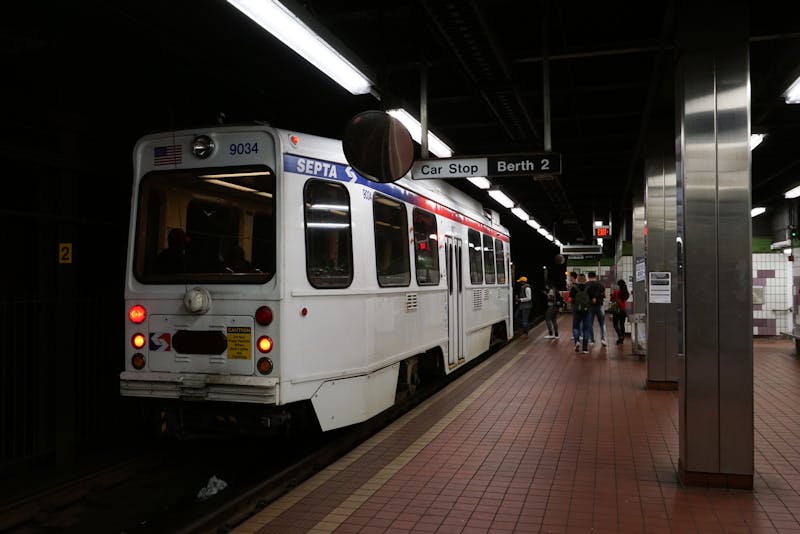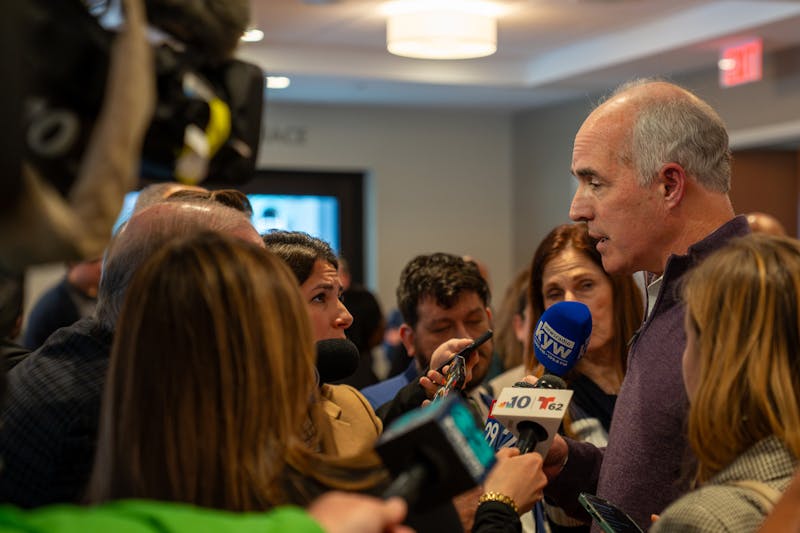
A Pennsylvania appellate court ruled in favor of the state over concerns of insufficient funds to treat Philadelphia’s opioid crisis.
The ruling, which was issued on Jan. 26, allows the state attorney general to enter civil settlements on behalf of Pennsylvania residents. The decision comes amid an ongoing effort to combat the opioid crisis in Philadelphia.
The decision is rooted in a 2021 deal brokered by then-Attorney General Josh Shapiro for Pennsylvania to receive $1 billion from Johnson & Johnson and other major U.S. pharmaceutical distributors. It was a response to thousands of lawsuits from multiple states that these companies exacerbated the opioid epidemic.
“We’ve seen really frightening and dramatic increases in fatal overdoses in West and North Philadelphia, especially among Black folks,” Perelman School of Medicine data analyst Emily Seeburger told The Daily Pennsylvanian.
In 2021, 82% of all unintentional overdose fatalities in Philadelphia involved opioids, making the fatality rate the highest in history. From 2020 to 2021, overdose fatality rates increased across nearly all age, sex, race and ethnicity groups. In particular, opioid and stimulate-involved deaths increased at a higher rate among Black individuals from 2019 to 2021, a trend which has continued.
Then-Philadelphia Mayor Jim Kenney and District Attorney Larry Krasner criticized the recent settlement after they were not included in the initial negotiations. They also filed their own lawsuits against the opioid distributors. At the time, Krasner told The Philadelphia Inquirer that there had “been zero meaningful effort” to include his office in the settlement negotiations.
Kenney said in a statement that the amount of money provided in the settlement was too small and paid “over too long a period of time.”
Krasner, alongside the Pittsburgh District Attorney, sued Shapiro over the claim that the Attorney General didn’t have the right to settle civil claims on their behalf.
Seeburger emphasized the importance of holding the money trail accountable, explaining that "funding allows policies to exist."
She also expressed concern about a "war on drugs" strategy being used with the funding for combating the crisis. She believes it should be used to give individuals in Kensington access to resources to rebuild their lives after drug use and incarceration.
“After periods of incarceration, people will have barriers to employment, housing and all of the support that is necessary in order to recover,” she said.
Netter Center Partnerships Manager Paige Lombard noted the importance of a "participatory democratic" approach including a "very collaborative process" to address the crisis in West Philadelphia's schools.
"Each school has a unique set of needs and strengths that we need to respond to,” Lombard said. “Being able to have politics that are flexible and adaptable to meet those needs is super important.”
The Daily Pennsylvanian is an independent, student-run newspaper. Please consider making a donation to support the coverage that shapes the University. Your generosity ensures a future of strong journalism at Penn.
Donate












